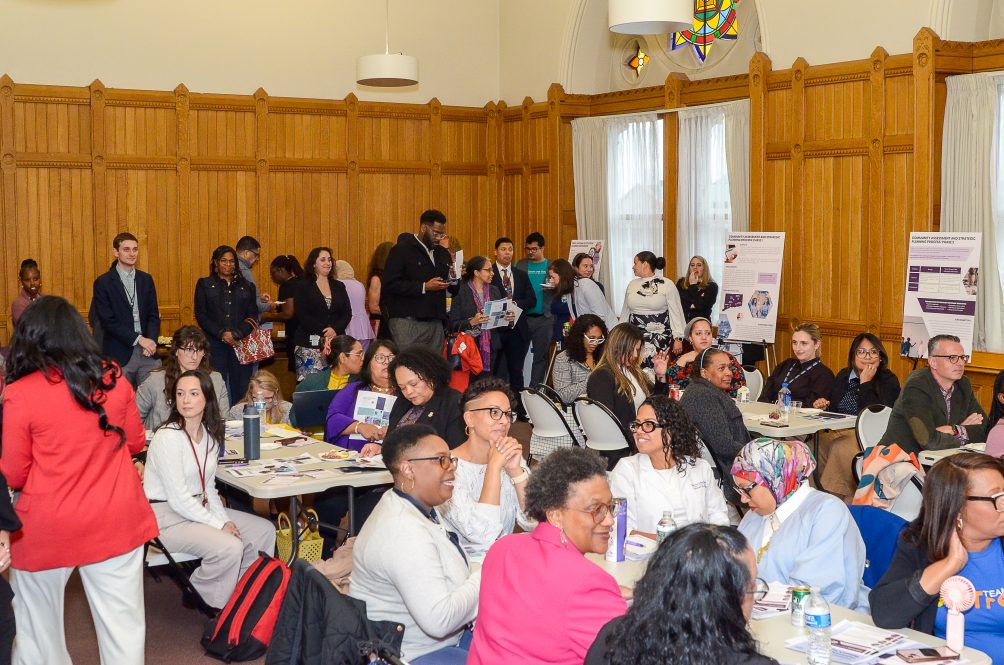Connecticut made history in 2021 by declaring racism a public health crisis, with the legislation forming the Commission on Racial Equity in Public Health. Now, four years later, the UConn Health Disparities Institute (HDI) is teaming up with the Commission to advance the charge toward systemic change to eradicate the impact of racism on health.
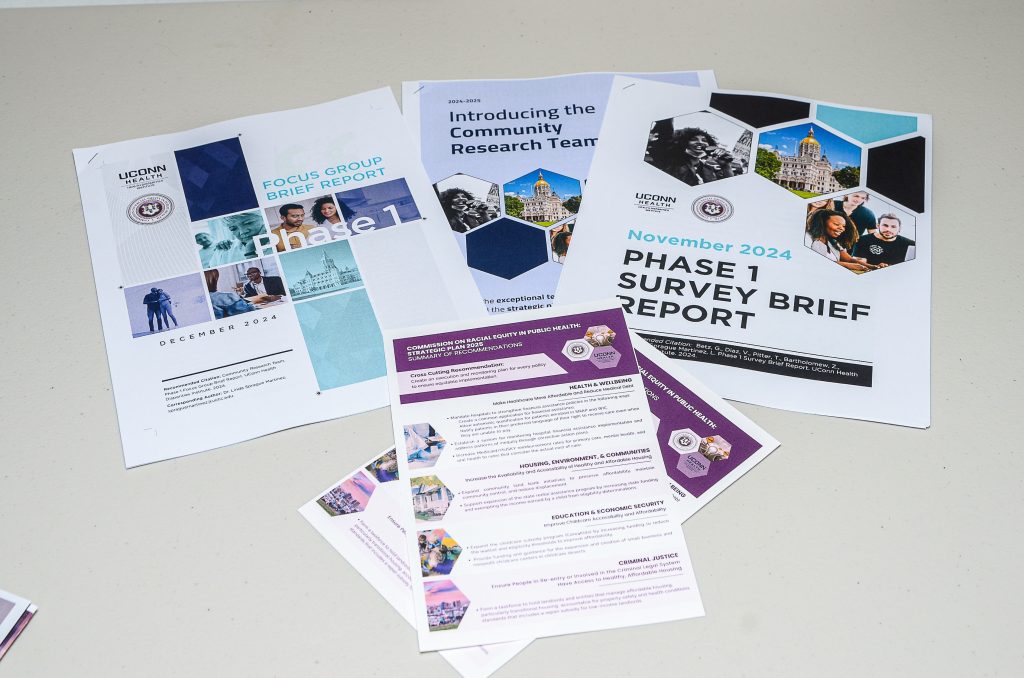 On May 21, HDI and the Commission shared a preview of the Commission’s statewide strategic plan’s recommendations at the Connecticut State Capitol. The event marked the culmination of the statewide strategic planning process that gathered insights from residents across the state on how racism affects their health.
On May 21, HDI and the Commission shared a preview of the Commission’s statewide strategic plan’s recommendations at the Connecticut State Capitol. The event marked the culmination of the statewide strategic planning process that gathered insights from residents across the state on how racism affects their health.
The Commission recommended addressing racism in four key areas of health and well-being, housing, environment and communities, education and economic security, and criminal justice.
Together, HDI and the Commission presented a powerful set of community-informed recommendations and actionable solutions to legislators and community members, touching on the trends of racism repeatedly seen in childcare access, affordable housing, medical debt, and the legal system.
The State Commission on Racial Equity in Public Health shared four goals in the key areas:
- Make health care more affordable and reduce medical debt.
- Increase the availability and accessibility of health and affordable housing.
- Improve childcare affordability and accessibility.
- Ensure people in re-entry or involved in the criminal legal system have access to healthy, affordable housing.
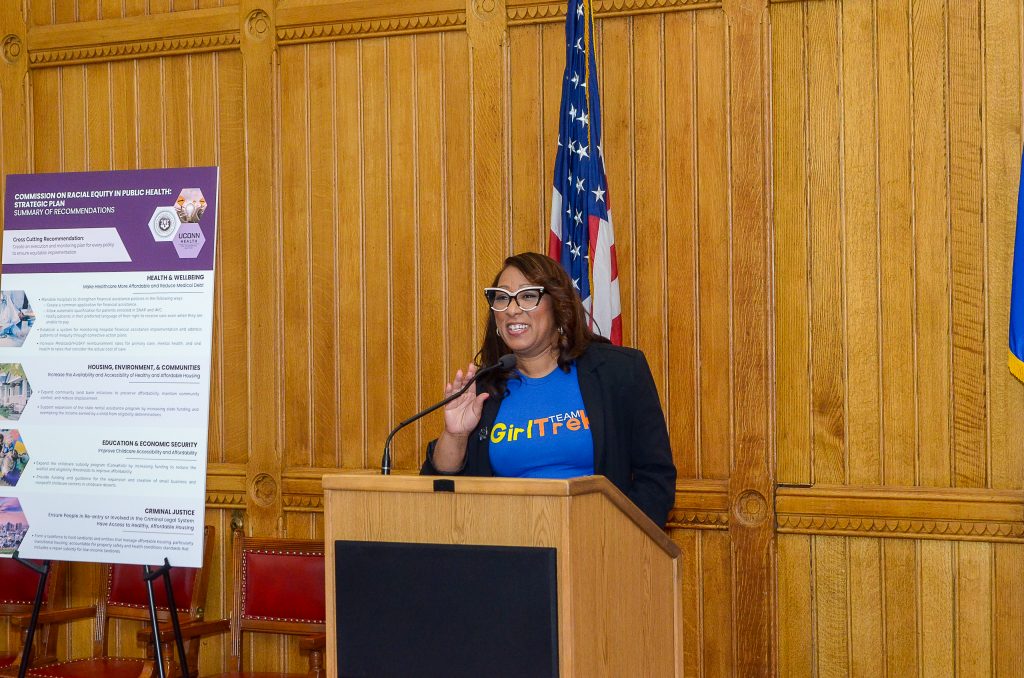
To fulfill the Commission’s statutory mandate to develop a strategic plan to reduce racial health inequities, HDI was selected through a competitive grant process to lead a statewide community-based participatory assessment and planning process to hear from Connecticut residents disproportionately affected by racial inequities.
HDI assembled a community research team of impacted residents from across the state to co-design and co-lead the process, ensuring it was grounded in community voices and lived experience. Statewide surveys and focus groups were also completed.
At the event on May 21, there were speakers from the Commission, its Advisory Body, HDI, and the community research team. Pareesa Charmchi Goodwin, the executive director of the Commission on Racial Equity in Public Health opened the event stating, “This is only the beginning. This work will be an ongoing, intentional, and incremental effort to dismantle racism in public policy.”
“Dismantling racism in public health is no easy fix, it will take time. But these new recommendations are an important first step. We now have a plan to challenge the ways racism operates to negatively impact health issues,” said UConn School of Medicine’s Dr. Linda Sprague Martinez, director of the UConn Health Disparities Institute.
“Our collaboration with the State Commission on Racial Equity in Public Health is novel, in that it is highly participatory and involves residents from across the state. Connecticut is leading the way when it comes to operationalizing how to address racism as a public health issue, and other states across the nation may be interested in replicating our approach. Our state is taking an anti-racism in health approach with deep community engagement to inform the legislation it recommends.”
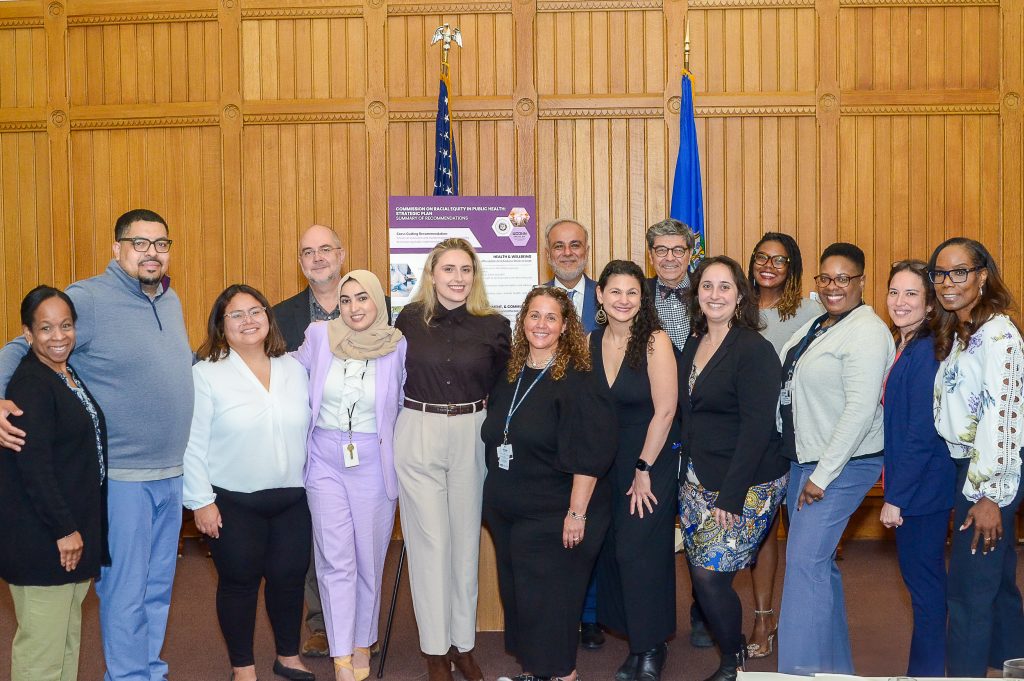
Sprague Martinez believes people in the community know what they need to be healthy.
“The Commission has worked with HDI to keep a finger on the pulse of the community, creating opportunities to hear from residents. Through participatory planning we have engaged broadly with residents on-the-ground from across our state to collect data, ensuring the voices of impacted communities have a hand in contributing to solutions and to future public policy,” says Sprague Martinez.
She adds, “These collaborative recommendations released by the Commission demonstrate the value of having community members participate as researchers in the research and planning process. This really can help make a difference to help create policy changes that really reflect local priorities,” says Sprague Martinez. “As a Black woman, addressing the impacts of racism in public health can be taxing on the soul; there are communities experiencing exclusion, erasure, exploitation, marginalization, and violence. This makes our work both necessary and important. Racism in public policy is a threat to the health and well-being of all people. We need to continue to work collaboratively across communities to ensure our collective well-being,” stresses Sprague Martinez.
She concludes, “Systems, health, social and others, are not broken, they are working as they were intended. For health and social systems to work for more people we need to start including more voices in the planning process. The approach the Commission used to develop its strategic plan is an important step forward in dismantling racism and ensuring the optimal health of all residents in the state. There is still more to do, but this is an important beginning.”
This summer the Commission and HDI plan to release the full strategic plan.
For assessment reports and more information, visit the strategic plan webpage of the State Commission on Racial Equity in Public Health.
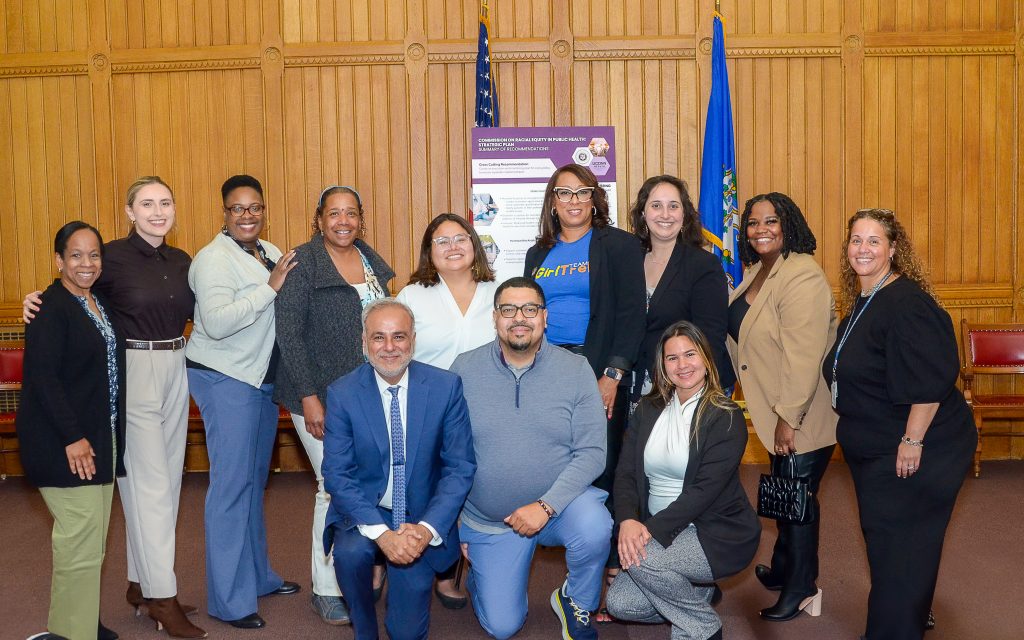
About the Health Disparities Institute (HDI)
The Health Disparities Institute at UConn Health works to advance equity and improve health outcomes by addressing the root causes of health disparities. Through research, data, workforce development, and strong partnerships with communities disproportionately impacted by inequities, HDI leads efforts to create systemic change. HDI’s vision is equitable health, education, and economic opportunity for all in Connecticut.
About the Commission on Racial Equity in Public Health (CREPH)
Housed within Connecticut’s legislative branch, CREPH’s mission is to make policy and systems change recommendations to eliminate racial and ethnic inequities in health and social drivers of health. CREPH advances this mission through study, documentation, policy analysis, and collaboration with impacted communities, state agencies, and stakeholders. Our vision is a healthy, racially equitable Connecticut.
